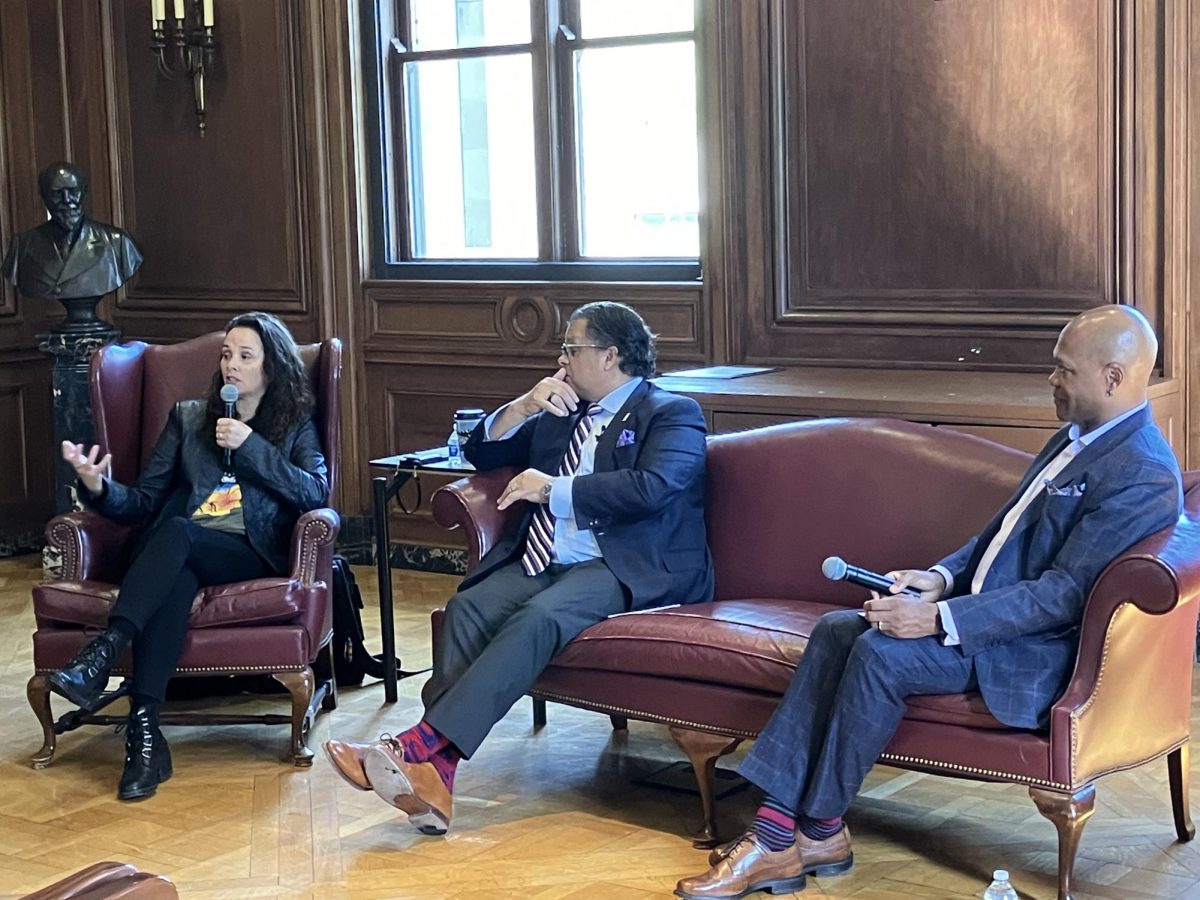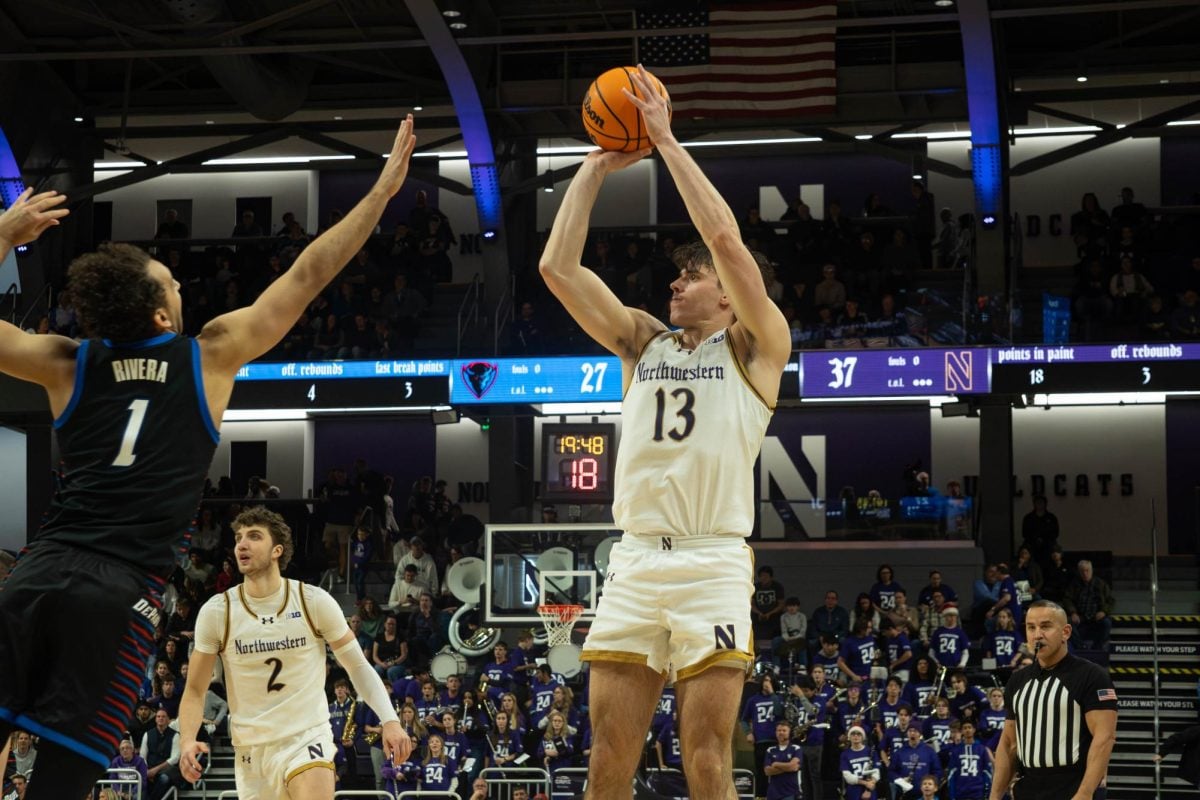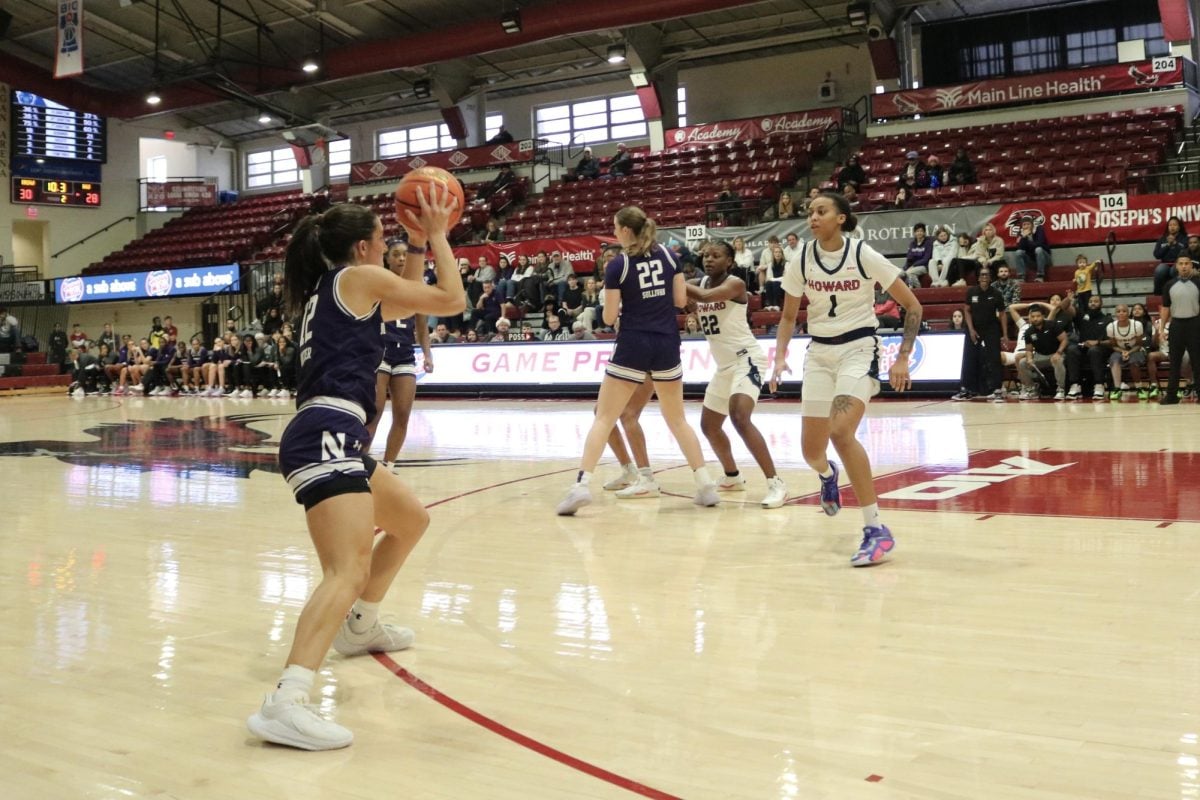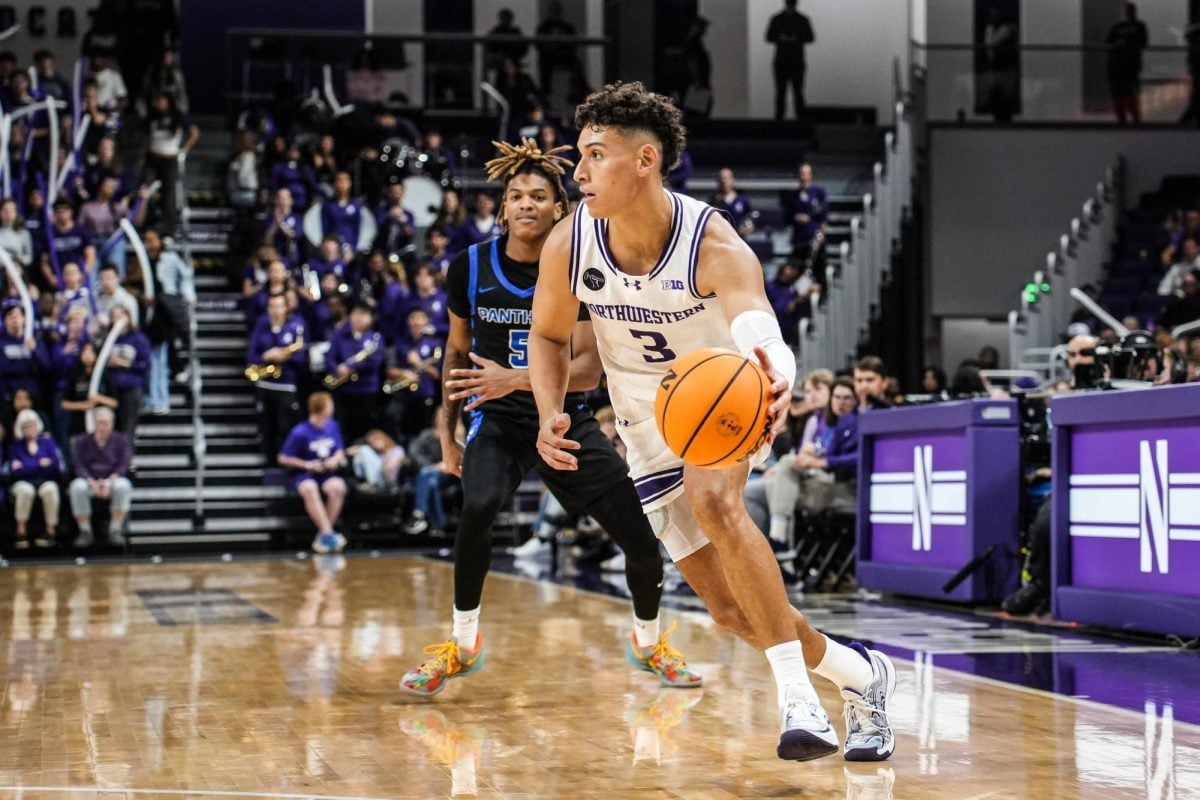Award-winning Indigenous playwright and choreographer Larissa FastHorse spoke at Harris Hall Tuesday in a guest speaker event hosted by SESP Dean Bryan Brayboy and Communication Dean E. Patrick Johnson.
Brayboy and Johnson explored FastHorse’s background in ballet — not writing — and her commitment to include her community in her work.
“If I talk to anyone about a piece, they have veto power over that piece,” FastHorse said. “(The arts) have been an extraction industry for Indigenous people, it comes in and takes and profits. I’m not there to do that.”
FastHorse, a member of the Sicangu Lakota Nation, is a 2020 MacArthur Fellow and a co-founder of Indigenous Direction, a consulting company for Indigenous artists and audiences.
Her show “The Thanksgiving Play” — which is playing at Chicago’s Steppenwolf Theater from April 25 to June 2 — made its Broadway debut in 2023. The show centers around four white individuals working to create a “politically correct” First Thanksgiving play in schools for Native American Heritage Month. It has since been one of the nation’s top ten most produced plays this season.
FastHorse is the first Indigenous playwright to make that list and only the second who has debuted on Broadway. The first, Lynn Riggs, a Cherokee playwright, made his Broadway debut about eighty years ago.
“This is the 100th year anniversary of American Indian peoples receiving citizenship in the U.S., almost the exact 100 year date as we speak,” Brayboy, who is a member of the Lumbee Tribe, said. “It becomes a really important piece. History matters. Our traditions matter.”
Some of FastHorse’s other productions include “Average Family,” “Teaching Disco Squaredancing to Our Elders: a Class Presentation,” “What Would Crazy Horse Do?” and a trilogy of plays: “Urban Rez,” “Native Nation” and “The L/D/Nakota Project.”
FastHorse’s works have been commissioned by several theaters around the U.S. and honored with numerous awards and funding. Her company, Indigenous Direction, produced the first nationally-televised land acknowledgment for Macy’s Thanksgiving Day Parade on NBC in 2020.
FastHorse said several theaters replaced her shows with Black shows after the height of the COVID-19 pandemic and the Black Lives Matter movement. She said swapping one underrepresented community for another misses the point.
“How about we do both?” she said. “But for the vast majority of theaters there’s only one new play slot for a person of color per season.”
FastHorse said the American education system has failed to adequately preserve and teach Indigenous history, culture and stories. She said while Indigenous theater has been in North America for thousands of years, it never cemented into traditional academia because of the historical oppression and suppression of Native voices in the U.S.
FastHorse added that arts can humanize stories. She said this allows audiences to go beyond the “what” and start to question the “why” about people’s actions — a crucial, but often overlooked, aspect of what makes facts and history verifiable.
“It was really interesting to hear her perspective as an Indigenous writer,” attendee Beth Garino (SESP ’99) said. “I didn’t know about all the struggles she faces getting her work out there and making sure that there’s representation.”
Email: [email protected]
X: @dpsamson_
Related Stories:
— Indigenous ETHS students call for increased efforts toward representation, acceptance
— NAISA celebrates Native American and Indigenous Heritage Month
— Native American and Indigenous community amplifies land acknowledgement dialogue


















